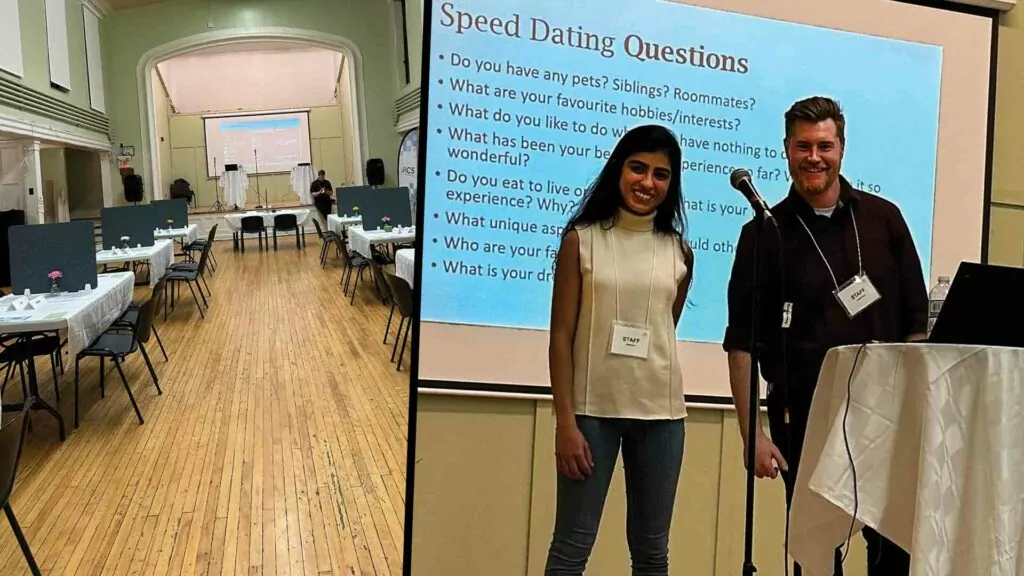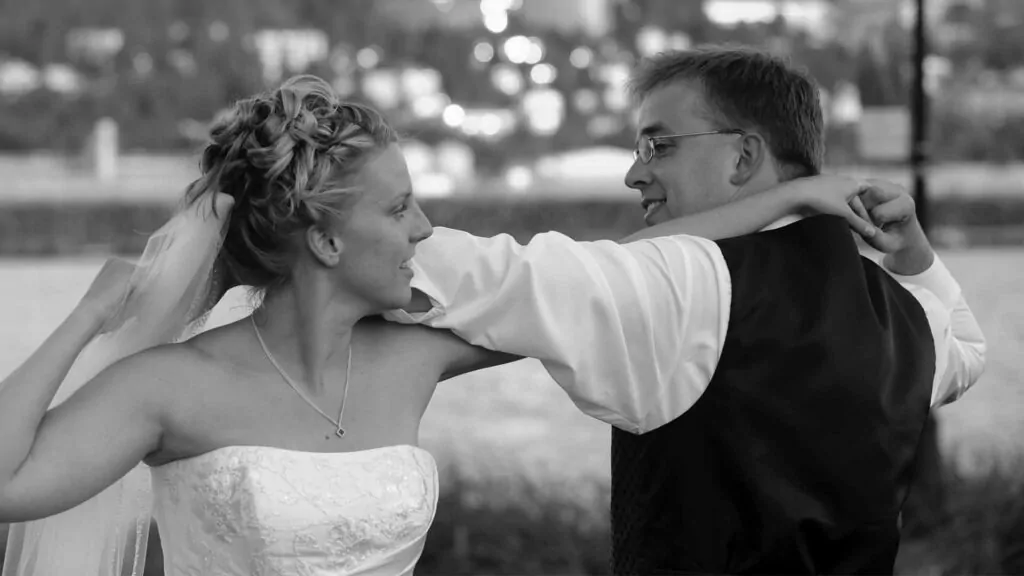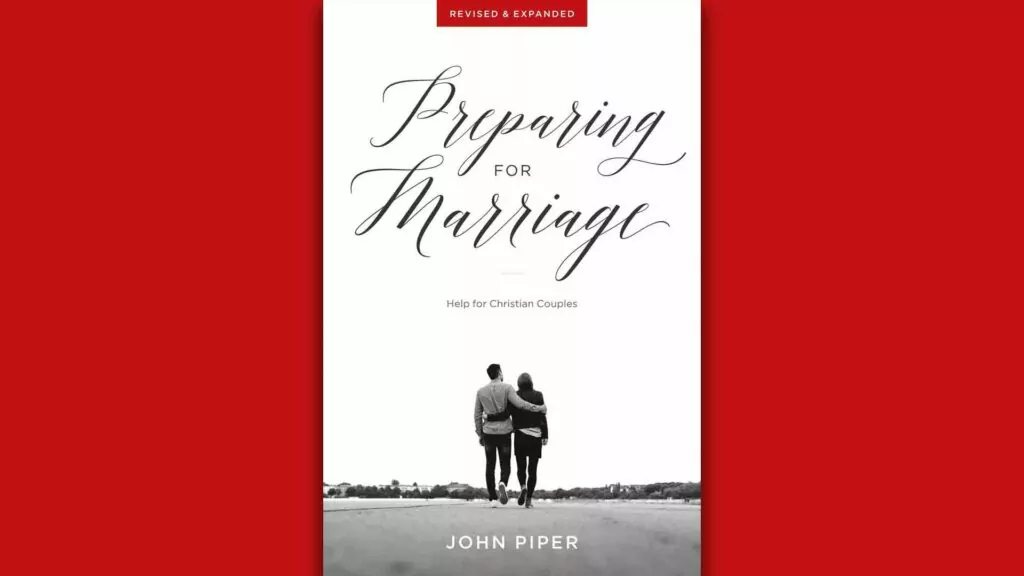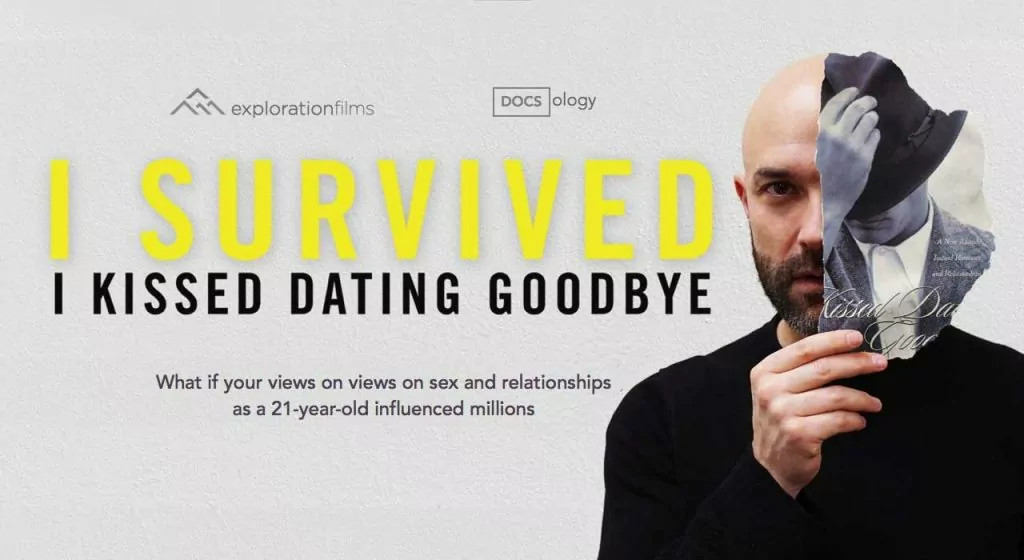How our friends, and the 'Net, brought us together
TRANSCRIPT
Alexandra Ellison: Okay, good. Okay, so if you want to start off, could you guys just both introduce yourselves and then we can kind of get into how you both met.
Seth Miller: You want to go first?
Zoe Miller: Okay, I guess I'll go first. I'm Zoe, I am married to this guy right here. If you're a listener, you can't see him. But I'm Zoe Miller. I'm 22. And I currently am a part-time journalist, part-time call center agent at a pro-life company. And Seth, and I've been married for one year and one month, coming up on that. But we're at a Presbyterian Church in Idaho. And Seth is the pastor, he can tell you a little bit more about it. But that's currently where we're at.
Seth: Yep, and my name is Seth. I'm a church planter here in northern Idaho and the Coeur d’ Alene region. We've been at it for about five months now. And we're seeing a lot of growth and exciting things that the Lord's doing through this church. It's kind of a wasteland as far as Reformed churches go. And so it's exciting to be able to participate in this work. I'm originally from Idaho. I made my way down to Texas. But I've always said that Idaho is the true promised land when it comes to states down here in America. That Idaho is it's a great place. But yep, Zoey, and I've been married for a year, and it's been fun so far.
Alexandra: That's great. So maybe if we could go back, I guess to a year and a bit more back to 2022. If you guys could kind of describe how you met.
Seth: Go ahead.
Zoe: Okay, so you should I'll let you finish off the story, I guess. Okay.
Seth: We usually have a plan, you know, though. We've got a tag team story, but...
Zoe: Yeah, it depends on the situation, which of us will start the story and which of us will end this story. But I have this very niche little podcast called "Presbygirls" that I do with a pastor's wife who is a friend of mine. And she and I hosted a show where Rosaria Butterfield was the guest. And she was talking about human sexuality issues, which are really popular to talk about in the PCA, which is the denomination that our church is at. And so Seth, all the way down in Texas, his session ended up listening to the podcast episode that we did with Rosaria Butterfield because it was relevant to the discussions that were going on. And so, as I understand it, Seth was in the office with another pastor that worked at the same church that he did. And Rosaria Butterfield, because we were talking about human sexuality and the theology of singleness, she asked me if I was single on the show, which I did not expect her to do, so kind of the wing-lady of the century, but she did. So she asked me if I was single. And I said, "Yes." And so Seth and his pastor, friend that he worked with were in the office one day, and I guess Seth said... What did you say?
Seth: So I said, " Who is this Zoe girl" because I had seen her on Twitter. But I didn't really know anything about her. But her name kept popping up. And then I see her on this podcast. And I was just curious who she was. I wasn't sure even how old she was. I knew she was in college or something like that.
Zoe: Isn't it that the first time you saw one of my tweets, you thought it was like 30.
Seth: Yeah. So that was just a thought that went out into the ether that then developed into something much more.
Zoe: Yeah, your pastor friend, Mark, heard Seth inquire about me. And he basically had it all in his mind that it would be a perfect fit, we would be together. And so he goes to this conference called the Gospel Reformation Network, a conference for confessional Presbyterians to get together. And I happen to know a lot of people at that conference because of my podcasting work. And during the conference, and some of the social times Mark was going around telling people "Oh, yeah, you know, we got this youth pastor down there at redeemer in Texas that's got a crush on one of the Preysbygirls." So I got messages from people that I knew at the conference like, "Oh, there's this youth pastor who has a crush on you." And I thought to myself, he can't possibly be my type, there's no way, I'm an old school girl. And then I'm in this big group chat where we talk about, you know, nerdy Presbyterians stuff. And somebody who knew Seth, a classmate of his in seminary, messaged me and said, "Hey, I know this guy, I think he's great. I feel like you guys actually have a lot in common." And he sent me some YouTube videos of Seth preaching. And so I watched the YouTube videos, and I was like, "Oh, yeah, it's, it's over!" It was pretty much over for me at that point. Then his friend set us up on a group chat with the three of us. And as soon as he saw that Seth and I were getting along, he left the group chat...
Seth: Good wing man.
Zoe: ...and that was literally when I was at the WORLD Journalism Institute (WJI). The first time that we talked, on Discord, was May 10. And I think WJI started on like, the 12th. Yeah, so it was, it was immediately then, and so I'm going through mind, there's this pastor guy, he's older than me. This is, this is a little odd. You know, my parents thought it was a little, a little odd. They thought I was too young to get married, not because of any serious reason, but they just didn't see it happening for some time. And then Seth and I got engaged in October. And, but from seth perspective, it was pretty interesting as well, up until that time.
Seth: Yeah, I was working at that church at the time. And, as a young single pastor, it was common for me to be approached by mothers in the church, inquiring if I would be interested in their daughters. That had happened several times. None of them really worked out. Nice girls and everything, but none of them stuck. And so I was in the place of, I don't want to do this anymore. It's weird dating within the church, you know, from a position of being a pastor. And so, at first, like we said, it was just kind of a curiosity that quickly developed into something much more than that. And that was basically what I needed because I wasn't really all that... I guess, I didn't have too many intentions on and really wasn't trying to get married anytime soon. I knew the Lord would provide a spouse for me. And so, it just created a life of its own. And, part of the reason for it is because the associate pastor that Zoey mentioned, his name is Mark, he is like a second dad to me. And so his interest in making sure I was getting married was, even more of an interest than I had. He thought he saw the potential there. And I mean, I thought Zoe was great from what I knew, but I didn't really know anything more about her. It would have been weird if I would have just gone to her Twitter page and, and DM-ed her. And I was definitely not going to do that. So it was like, it was almost this kind of, I don't know, arranged marriage in the Presbyterian world – all these people working behind the scenes. And that's what I think made it so unique. But it was exactly probably what would have worked best for the both of us where we were at our stages of life. You hear about all the horror stories about meeting somebody online, and as a real person, you don't know what they're really like, you only see some pictures. There was some fear and trembling before we actually met the first time. What's this person really like? So we actually met at the General Assembly of the PCA. So again, this is a very, very strange story that's abnormal for 99% of the population. I don't know if anybody else could write up a story like this. But we met at General Assembly and that was an interesting time.
Zoe: Yeah. Because he got to meet my dad for the first time at General Assembly because he was there. So he looked him over.
Seth: Zoey had to meet with the two pastors that I was on staff with, and they wanted to know her intentions. And so it was very much like this, courtship sort of.
Zoe: Both of us were vetted thoroughly.
Seth: Yeah. And, yeah, and then we actually got to talk to each other a little bit during that time. We were both nervous because when you go from online to in-person, that's a totally different dynamic. You know, you can text, you can call, you can FaceTime, all that stuff, but then when you're actually standing in front of each other. I think we were both sweating away – at least I was.
Zoe: Oh, yeah. So, that's pretty much how it happened. Then we had a phone call where I was actually working on my broadcast thing for WJI, late at night. And Seth and I were on the phone, because we talked on the phone all the time. And so Seth, called me as I was working late, by myself in the classroom that you're familiar with on this story. Seth calls me and he's like, "Okay, so before we get too emotionally involved, what is the purpose of what we're doing here? Like, what are we doing here? What are we trying to accomplish?" And I was like, "Well, I guess what I think we're doing is eliciting marital compatibility." Those are the exact words!
Seth: A little robotic, but good. It was accurate.
Zoe: From that point on, it wasn't really awkward to try to figure out like, "Oh, where are we going to go from here?" We got engaged in October of that year. And we got married in March of the next year. I would always be frustrated when I would ask people who I thought had great marriages, "How did you know that you were supposed to marry your spouse?" And they would always say, "Well, you know, when you know," and I would say, "That's not a real good answer!" But at this point, they were 100%. Correct. It's really difficult to convey that to somebody who doesn't actually have that knowledge by experience, but I'm finding out that they were right.
Alexandra: You kind of you kind of mentioned this at the beginning. But part of the story is that there's like, been a bit of pushback, you know, within our culture of people getting young. You even see it within the church. I've been in churches in kind of major cities - a lot of young professionals - and they kind of prolong marriage to you know, 30+. So, was there any sort of pushback for you getting married young? It was only, I guess, a few months when you guys got engaged?
Zoe: Yeah, We'd only been we'd only dated for like five months when we got engaged. So I think my parents were the ones that were more interested in me having a career before marriage than even me. Seth is pretty charming, though. So I wasn't really sure exactly what I was going to do after college, probably journalism, but I didn't have any job prospects lined up. And as I went into college, I had this idea of being a young professional-like single lady. But because of the churches that I was going to, I sat under really solid, good preaching and teaching. And I got to know a lot of families who, the wives and moms were incredibly capable and smart ladies, but it was just a great service that they did to their family to prioritize that before they, you know, before they went off and had a job. Particular lady who I know pretty well, for my church, when I was going to college, she got married to her husband when she was 18. And he was 21. And she's very smart. She's very pretty, she could have done a lot of things with her life, but she decided that she wanted to have a family instead, and having a family and getting married and contributing to somebody else's life instead of just her own. I kind of conceived of that as something you did if you didn't have any other options, but it's through this experience of meeting her and a lot of ladies like her, I learned that just getting married young is not a waste of time. It's not. It's not an anti-intellectual exercise, it actually takes effort, and a little bit of intelligence – the sprinkling that I still have left – to put effort into your marriage. I think people tend to see it as something that doesn't require hard work. You know, women only do it if they don't really have any skills. But I think that's totally wrong. And just meeting people who made that choice changed my perspective. And by the time that I was through with college, I was thoroughly fed up with the, the caricature of the young professional lady who's on her own and doesn't need anybody. Society just doesn't quite work like that. As I got through college, I got more conservative as well as more serious about theology in my Christian faith, so that contributed to it as well. But yeah, there is definitely that pushback towards Christian women marrying young. I think a lot of people are concerned that they're not ready. But a lot of great advice that I received is, if you have a man who loves the Lord, that's 90%. If he's a minister, that's like another 5%. And if he's older than you, that's a big plus, too. So, beyond those initial objections, once we convinced my parents it was pretty much good to go. But
Alexandra: Some of the article I've been doing is trying to get maybe more concrete advice for young woman, and then also for young men. I think for young men, a lot of the advice I've heard is like Kevin DeYoung's book, it's called Just Do Something. Yeah, you can go out and you can, you know, take God's will, and you can just go and pursue a woman that you're interested in, within the church. You can go do that. But I think, as a woman, in some sense, that can kind of be hard, because it's like, "I just have to wait for someone to pursue me? What can I do during this time?" So I guess I'll ask, Seth, and then also Zoe, so what would be your advice for young woman and your advice for young men?
Seth: Yeah, I think for young men, and I think this would apply to young ladies as well, the early years in your early 20s, that's a great time to really cement your standing as a Christian, really grow a lot, and get involved in the life of the church. When you're focusing on growing as a Christian, you're focusing on serving in the church, and being a part of the church, a lot of those things just kind of come together on their own. I've noticed with some young guys, they kind of, they'll think of everything in terms of, of getting married and pursuing a wife, having children. I think that's a good God-given natural desire, but at times, everything is so focused towards that, that personal growth becomes a means to an end. They feel like, okay, I've gotten all of the boxes checked, and I have enough income to be able to support a family. And so they get really focused on that, which again, I think is fine. And I think to have that drive is a good thing as a young man. But there's still a point to which you want to make sure that you're, you're pursuing the Lord in that time. And again, you're even as a man, you're still waiting upon the providence of the Lord to bring the right woman in front of you. And so there is a sense of waiting even in that, that you don't want to just go out and, you know, pursue everything under the sun. I've seen guys that do that and it doesn't work out too well for them. So I would just say, make sure you're focused on the right things, prioritizing disciplines of godliness, because you want to be able to lead a family well. And if you have not mastered those things, at least in a small sense, before you're married, it's not gonna go too well when you are married.
Zoe: The spiritual disciplines, as far as young women go, it is easy to, especially if you are more conservative, or you are you have more of a traditional desire for a traditional family, which is good, even though you may not be a husband someday because you're a female, it's still good to want to get those spiritual disciplines. You want to be the best kind of Christian you could possibly be, so that you so that you are ready for the solid Christian man that comes into your life. You want to be ready for that in the sense that you take your spiritual life seriously. It's going to be as big a benefit to him as his spiritual maturity is to you in a lot of ways. It might seem kind of counterintuitive to sit and wait but there is a lot of there's a lot of development you can do just spiritually when you are kind of waiting on God's providence to bring the right man in front of you. Something that I have seen and I actually sort of did this myself a little bit when I was younger is, when girls meet guys they expect them to be straightforward, but girls don't have the same instincts to be straightforward. A lot of the times they like to talk to guys and they may be kind of naive about why these guys are interested in talking to them so much. And especially if the guy struggles with being straightforward, you really have to, if you are talking in any kind of way with a Christian man who's around your age, and it's a little more than normal, more than a friendship or an acquaintance, you have to question. Don't stop yourself from being straightforward. Because you don't want to play with him. That's a really strong temptation for a lot of Christian girls, is thinking, "Well, I don't have to be upfront about what are my expectations for the relationship are, what I want out of a marriage and a family, because that's his role." I think it's really good for you to, to just be straightforward. And if he has a problem with being straightforward. Anyway, I've used that word like, fine. But the point is, the point is, you should be upfront about your expectations.
Seth: Clarity, right?
Zoe: That's not something that's limited to the man's role. And spiritual disciplines as well. But it's not bad to have great expectations and happy expectations of a marriage and a family. I think that's a really important piece of advice, too.
Alexandra: And I think my final question would be, how do you think that maybe the church or other people in ministry could kind of help to encourage young marriage because some of the things that I've seen being done is I spoke to one pastor, he runs this conference in Calgary called reformed youth conference. So it's for people, singles, aged between 18 and 30, they all go down to Calgary for a week at night, you know, hear speakers, and then like, the point is not necessarily to get people married, but it kind of just happens, because, you know, you have all of these like minded Christians in one space, I spoke to someone else that does Ottawa, Christian speed dating. So all of these kinds of different events that are just, you know, being set up to help kind of grow those relationships. So I don't know if you guys Yeah, haven't yet other ideas on how we could kind of
Seth: Yeah, I think, you know, one of the most helpful things you can do, and I, say this from our limited experience of being married for a year, but also just receiving a lot of good advice and encouragement from older saints, older ministers, is to speak positively about marriage in the first place. There tends to be a lot of cliches in Christian circles that kind of downplay marriage or speak down on "Oh, it's the most sanctifying thing you'll ever do." And even speaking of marriage as almost like a sacramental thing, where it's like, you have to work enough to finally be good enough to get married. I've seen that happen in different church contexts. So, you know, speaking about the goodness of marriage, speaking about as the ordinary way that God grows his church through through families. It's not something that's strange. Our culture is pushing against it that, you know, a marriage between a man and a wife, especially at a young age is odd. Why would you tie yourself down? Why would you commit to uncertain pains for the rest of your life? I think that if we can encourage younger people that marriage is good, you should do it. We don't have to put unnecessary pressure on younger folks to get married, but we can at least encourage that this is a good thing. Especially if you're in the Reformed community – Christianity in the West in general – you know, our circles are getting incredibly small. So if you're at a church with 60, or 70, people, there's probably only a couple of single people left. And so the more and more that we can just have relationships with other churches, and just, what you're describing there of, of allowing opportunities for young people to meet. Online is allowing that – there's limitations to it, there's blessings in it. But, you know, the more that we can actually do this on a kind of a local level, I think the better.
Zoe: Yeah, and especially because of the way we met: somebody knew somebody. Somebody knew of the two of us and then somebody else figured out that we might be good for each other just based on common characteristics. But it's all due to just church connections – kind of like Seth was saying – people at other churches who know people at other churches. So it's this big kind of intertwined ball of yarn that is like an arranged marriage almost to a certain extent, like Seth said. One thing that we heard i our premarital counseling, which was honestly great – and I think you don't have to go to premarital counseling to see that this is true – but our pastor at the time, he said, a lot of people ask him, "What are the five easy steps to have a happy marriage or a healthy Christian marriage?" And he said, "The easiest way to sort of understand what a good healthy Christian marriage looks like, is just to find somebody who models that well, and watch what they do." So I mean, as people in the church, it's our responsibility to model as Christ-like behavior as possible to those around us, which you know, I am sure I have a lot further to go than I think I do. Married couples modeling that as best they can. Not necessarily saying that marriage is a standard of perfection that you have to attain or, or that your marriage is perfect. But there is a peace to marriage – a lot of people see it as limiting – but I think there's a lot of freedom with, you know, being united somebody else, that people don't really realize. So couple's in the church just being positive about marriage. It's not that you won't disagree with each other sometimes. But our premarital counselor also told us this, "That if you go into marriage, expecting that, it'll be hard, you're kind of pre-empting yourself into thinking that, 'Oh, it's just going to be really tough. And it's going to be this experience that's so hard. And that's why it's going to be sanctifying.'" But if you trust in the Lord and go in with positive expectations, I think that's something that people should be told. So just a general modeling of Christian behavior on the part of the church. And don't be afraid to tell somebody about somebody else that you know, because that's how we got together.
Alexandra: Well, thank you both for just taking the time to tell your story. I think that a lot of people will find it interesting and intriguing. It's a little different compared to the regular, I guess, online dating sense. But yeah, thank you both.
Thank you again to Zoe and Seth for joining me on this episode. If you would like to read more about the story then you can check out the May/June 2024 issue of Reformed Perspective. Thanks for watching. Bye!...
























